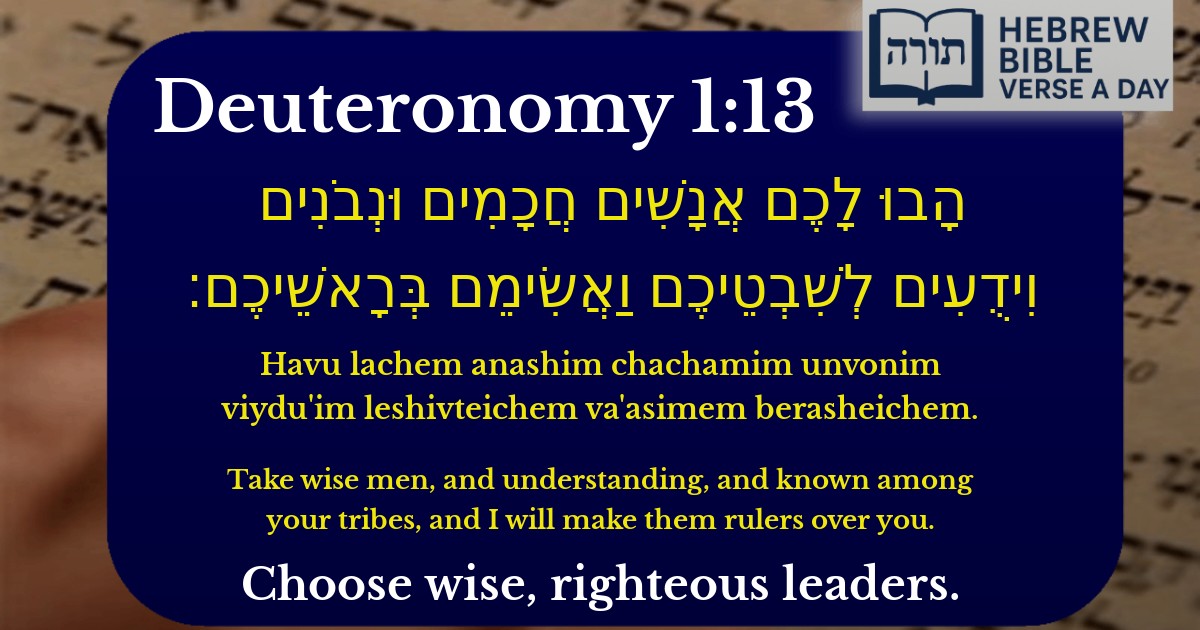Frequently Asked Questions
Q: What does Deuteronomy 1:13 mean when it says 'wise men, understanding, and known among your tribes'?
A: This verse instructs the Israelites to appoint leaders who possess three key qualities: wisdom (חֲכָמִים), deep understanding (נְבֹנִים), and good reputation among their people (וִידֻעִים). Rashi explains that 'wise' refers to knowledge of Torah, 'understanding' means the ability to derive one matter from another, and 'known' means they should have a good reputation, as leadership requires public trust.
Q: Why is it important that leaders be 'known among your tribes'?
A: The Talmud (Yoma 22b) teaches that leaders must be familiar to and respected by their communities. A leader who is 'known' (וִידֻעִים) has proven their character and reliability. The Midrash (Sifrei Devarim) adds that this prevents favoritism—leaders should be chosen based on merit, not personal connections.
Q: How does this verse apply to choosing leaders today?
A: The Rambam (Hilchot Sanhedrin 2:7) derives from this verse that Jewish leaders must be Torah scholars, morally upright, and respected by the community. Today, this principle guides the selection of rabbis, judges (dayanim), and communal leaders—emphasizing wisdom, insight, and integrity over popularity or power.
Q: What can we learn from Moses instructing the people to choose their own leaders?
A: The Sifrei (Devarim 13) notes that Moses involved the people in selecting leaders to teach that authority must be granted with consent. This reflects the Jewish ideal of communal responsibility—leaders serve the people, not themselves. Rashi adds that 'I will make them rulers' shows that true leadership requires divine approval alongside human choice.


Context of the Verse
The verse (Devarim 1:13) appears in Moshe Rabbeinu's recounting of the appointment of judges to assist him in governing Bnei Yisrael. This system was initially established at the advice of Yitro (Shemot 18) and is now being implemented as Bnei Yisrael prepare to enter Eretz Yisrael.
Qualities of the Judges
The Torah specifies three essential qualities for leadership:
Selection Process
The phrase "לשבטיכם" (among your tribes) teaches, as the Sifri states, that judges were to be chosen from each tribe, ensuring representation and familiarity with tribal customs. The Talmud (Sanhedrin 16b) derives from this that judges must be appointed by the consent of the community.
Divine Approval
The concluding phrase "ואשמם בראשיכם" (I will make them rulers over you) shows that while human selection is necessary, true authority comes from Hashem. The Kli Yakar notes this demonstrates that proper leadership requires both human effort and divine sanction.
Practical Lessons
The Mechilta emphasizes that these qualifications remain eternally relevant for Jewish leadership: